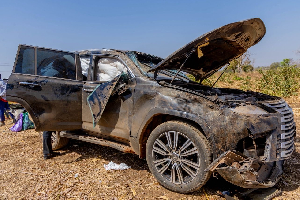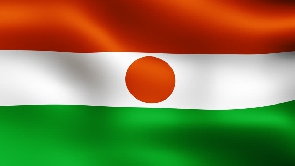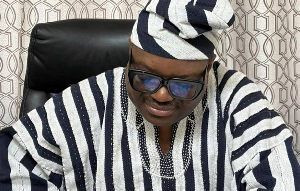The Executive Director of the Center for Maritime Law and Security (CEMLAWS), Capt. Dr. Kamal-Deen Ali Rtd, has called on Regional bodies to act swiftly as piracy cases continue to surge in the Gulf of Guinea.
Piracy continues to be a menace in the Gulf of Guinea as it is reported that more kidnappings took place at sea in the first two months of 2021 alone than the entire first quarter of 2020.
According to Capt. Dr. Kamal Deen-Ali Rtd, this is due to improved methods of operation, profitability, newer business modules, and the inability of regional bodies to combat and outwit these criminal organizations.
“For every crime, once we allow it to fester, those involved in the crime will perfect it. The business module of the crime has brought more money to the actors, and they are able to themselves, get faster boats to conduct their activities,” he explained.
The expert on maritime law and security indicated that the piracy organization has demonstrated higher sophistication in terms of resources, planning, hostage accommodation, and negotiations.
“There are many players now involved in the business module of mass kidnapping aside those who go on the sea. There are other levels of people. Those who keep moving the captives from one place to another. There are also negotiators who negotiate the ransom on the side of the pirates, among others,” he revealed.
Although Dr. Kamal Deen admitted to some regional efforts like the Yaoundé architecture for maritime security, he called on individual nations to be more proactive in the fight against piracy.
He said security agencies should have direct access to government funds for retooling and augmenting their capacity because budgetary allocation remains very insufficient if they are to match up to the strength and sophistication of pirates.
He urged the government of Nigeria to expedite action against piracy since most of the issues of piracy are generated within that jurisdiction.
“If we are to make headway regionally, 90% of that effort has to come from Big Brother Nigeria because generally the piracy groups usually operate from Niger Delta area,” he opined.
Dr. Kamal Deen-Ali said the incidence of pirate attacks has continued to register its footprints in Ghana, explaining that the same seriousness ought to be attached to combatting it locally.
He bemoaned that these initiatives would have to be expedited swiftly, because not only are lives at risk, but increased piracy in the Gulf of Guinea means the cost of international trade in the sub-region would continue to soar to unbearable levels.
“Not only will insurance on ship increase but also insurance on crew. And that will mean higher freight charges and that will have to recover on imports,” Dr. Kamal Deen articulated.
The Executive Director for CEMLAWS, who is also a Senior Lecturer at the University for Professional Studies Accra, disclosed some initiatives from the international community in the policing of the Gulf of Guinea against piracy.
He, however, called for strong collaboration between these international bodies and the African states in this fight.
He said, while he understands the procurement of navy ships may not be possible within a year, these processes must be started immediately to increase the chances of mitigating these crimes at a faster rate.
Business News of Wednesday, 24 March 2021
Source: Eye on Port













